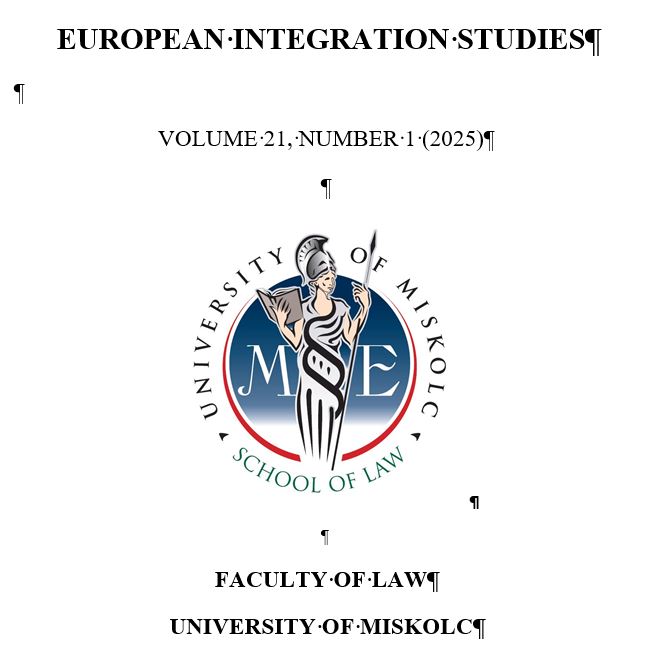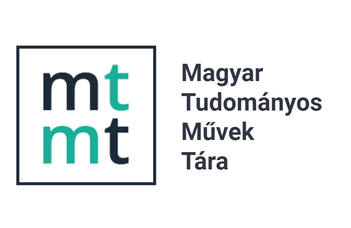The status rights of the child and the search for a new paradigm of parenthood in Czechia
DOI:
https://doi.org/10.46941/2025.1.8Keywords:
assisted reproduction, surrogate motherhood, mother, father, gender neutral parenthood, child, rights, status, foreign decision, recognition, public order, case law, Constitutional court, designed law.Abstract
The traditional concept of the status rights of a child, which is based on the concept of natural law that the mother of the child is the woman who gave birth to the child and the father is the man determined by the time-honoured presumption of paternity, has been disturbed in recent years. Many States are now faced with requests from their citizens to register a foreign-born child, particularly through surrogacy. These often involve not only married or unmarried couples, both heterosexual and homosexual, but also individuals. Assisted reproduction, and the “reproductive tourism” frequently associated with it, is a challenge, not only for the “conservative legislator” but also for the “old-world registrar” recording the birth of a child in the public registers, or for the “rigid judge” deciding on the recognition of a foreign public document when the registry office “sticks to” the old order. However, it encompasses not just the controversial issue of assisted reproduction, or surrogacy, but much more: a fresh perspective on family law, family life, parenthood, human rights – including the rights of the child, or the best interests of the child – in the context of public policy, or public order.
References
Eliáš, K., Zuklínová, M. (2001) Principy a východiska nového kodexu soukromého práva (Principles and Starting Points of the New Code of Private Law). Praha: Linde.
Eliáš, M., Zuklínová, M. (2005) Návrh občanského zákoníku (Draft for the Civil Code). Praha: Ministry of Justice.
Garayová, L. (2022) ‘Surrogate Motherhood-The European legal Landscape’. Law, Identity and Values, No. 2, pp. 65–83.
Haderka, F. (1986) ‘Náhradní mateřství (Surrogate Motherhood)’, Právný obzor, No. 10, pp. 917–934.
Holub, M. (2006) ‘Registrované partnerství? Ani ryba, ani rak (Registered Partnership? Betwixt and between)’, Právní rozhledy, No. 9, pp. 313–317.
Ignovska, E. (2015) Sperm Donation, Single Woman and Filiation. Cambridge – Antwerp – Portland: Intersentia, 2015.
Králíčková, Z. (2003) ‘Adoption in the Czech Republic: Reform in the Light of the Child Welfare Laws’ in Bainham, A. (ed.) The International Survey of Family Law. Bristol: Jordan Publ. Limit., pp. 125–142.
Králíčková, Z. (2008) ‘Tension between Legal, Biological and Social Parentage in the Light of the Best Interest of the Child’, Legal Studies and Practice Journal, No. 3, pp. 275–282.
Králíčková, Z. (2010) Lidskoprávní dimenze českého rodinného práva (Human Rights Dimension of Czech Family Law). Brno: Masarykova Univerzita.
Králíčková, Z. (2014) ‘New Family Law in the Czech Republic: Back to Traditions and Towards Modern Trends’ in Atkin, B. (ed.) The International Survey of Family Law 2014 Edition. Bristol: Jordan Publishing, pp. 71–95.
Králíčková, Z., Nový, Z. (2017) ‘Dvě matky, jedno dítě, nejlepší zájem dítěte a veřejný pořádek. (Two Mothers, one Child, the Best Interest of the Child and Public order)’, Právní rozhledy, No. 25, 15-16, pp. 524–530.
Králíčková, Z. (2021) ‘On the Family and Family Law in the Czech Republic’ in Barzó, T., Lenkovics, B. (eds.) Family Protection from a Legal Perspective. Budapest – Miskolc: CEA Publishing, pp. 77–102.
Králíčková, Z. (2022) ‘The Rights of the Child at Risk’, Law, Identity and Values, No. 2, pp. 83–100.
Králíčková, Z., Hrušáková, M., Westphalová L. et al. (2020) Občanský zákoník II. Rodinné právo (Section 655-975). 2. vyd. Komentář. (Civil Code II. Family Law (Sections 655-975). 2nd ed. Commentary). Praha: C. H. Beck.
Králíčková, Z., Hrušáková, M., Westphalová L. et al. (2022) Rodinné právo. Učebnice. (Family Law. Textbook). 3rd ed. Praha: C. H. Beck.
Králíčková, Z., Kornel, M. (2024) ‘Czech Republic. An expert opinion on the compliance of the European Commission Proposal for a Council Regulation on jurisdiction, applicable law, recognition of decisions and acceptance of authentic instruments in matters of parenthood and on the creation of a European Certificate of Parenthood with national law of the Czech Republic.’ in Sobczyk, P. (ed.) The impact of EU law on the family law of selected Central European Countries Proposal for a Council Regulation on jurisdiction, applicable law, recognition of decisions and acceptance of authentic instruments in matters of parenthood and on the creation of a European Certificate of Parenthood. Warszawa: Instytut Wymiaru Sprawiedliwości, pp. 31–48.
Pavelková, B. (2013) Zákon o rodine. Komentár. (Act on the Family. Commentary). Praha: C. H. Beck.
Radvanová, S. et al. (2015) Rodina a dítě v novém občanském zákoníku (Family and the Child in the New Civil Code). Praha: C. H. Beck.
Scherpe, J. M. (2016) The Present and Future of European Family Law. Cheltenham (UK) – Northampton (MA, USA): Edward Elgar.
Scherpe, J. M., Fenton-Glynn, C., Kaan, T. (eds.) (2019) Eastern and Western Perspectives on Surrogacy. Cambridge – Antwerp – Chicago: Intersentia.
Sörgjerd, C. (2012) Reconstructing Marriage. The Legal Status of Relationships in Changing Society. Cambridge – Antwerp – Portland: Intersentia.
Telec, I. (2017) ‘Kritický pohled na nález Ústavního soudu: uznání kaliformského rodičovského statusu stejnopohlavního manžela (A Critical Look at the Constitutional Court´s Ruling: Recognizing California Same-sex Spouses´ Parental Status)’, Právní rozhledy, No. 19, pp. 670–674.
Valc, J. (2024) ‘Budoucnost náhradního mateřství v českém právu (Future of Surrogate Motherhood in Czech Law)’, Soukromé právo, No. 7–8, pp. 24–40.
Wells-Greco, M. (2016) The Status of Children Arising from Inter-country Surrogacy Arrangements. The Hague: Eleven International Publishing.





